Attention College Students: Do Not Miss Out On Your Economic Impact Payment
Attention College Students: Do Not Miss Out On Your Economic Impact Payment
Deadline is November 21, 2020 to register with IRS.
On March 27, 2020 President Trump signed the $2 trillion Stimulus Bill formally known as the Coronavirus Aid, Relief and Economic Security [CARES] Act (the “CARES Act”) to provide assistance to workplaces and employees. The CARES Act provides many benefits intended to deliver cash into the hands of individuals and businesses, as well as many other tax provisions. One of the most publicized provisions is the immediate cash payments by the Federal government to qualifying taxpayers.
Who is eligible for the economic impact payment?
To get cash assistance promptly delivered to individual taxpayers, qualifying taxpayers will receive one-time cash payments of $1,200 for individual taxpayers or if married, $2,400 for married couples. An additional $500 may be paid for each qualifying child.
These amounts are subject to reduction if the individual’s Adjusted Gross Income (AGI) exceeds $75,000 for an individual taxpayer; $112,500 for head of household; or $150,000 for a married couple.
Nonresident alien individuals and a person who is the dependent of another are ineligible to receive the payment.
For filers with income above those amounts, the payment amount is reduced by $5 for each $100 above the $75,000/$150,000 thresholds. Single filers with income exceeding $99,000 and $198,000 for joint filers with no children are not eligible.
So how do college students claim their economic impact payment?
College students who do not normally file a tax return can register for an Economic Impact Payment by using the Non-Filers tool on IRS.gov. Those eligible to use the tool can include people who receive little or no income, including many self-supporting students. However, dependent students who are claimed as a dependent by their parents or someone else do not qualify.
Since the Non-Filers tool launched in the Spring of 2020, over 8 million people have used it to register for a payment but time is running out as November 21, 2020 is the deadline to register with IRS. Anyone who misses the November 21 cutoff or recent college graduates from 2019 and 2020 who were claimed as a dependent by their parents or someone else will need to wait until next year and instead claim the Recovery Rebate Credit when they file their 2020 federal income tax return.
All taxpayers can check the status of their economic impact payment by using the Get My Payment tool, available on IRS.gov.
An Opportunity For Taxpayers Who Owe The IRS
Do not think that if you owe the IRS your tax problem will disappear because of the measures being considered by the government. Instead you should be utilizing this valuable time to get yourself prepared so that when activity in this nation regains momentum, you are ready to make the best offer or proposal to take control of your outstanding tax debts.
As a prerequisite to any proposal to the IRS, you must be in current compliance. That means if you have any outstanding income tax returns, they must be completed and submitted to IRS.
Also, if you are required to make estimated tax payments, you must be current in making those payments.
Remember that COVID-19 does not alter the tax laws, so all taxpayers should continue to meet their tax obligations as normal. Individuals and businesses should keep filing their tax returns and making payments and deposits with the IRS, as they are required to do.
Also, the IRS will continue to take steps where necessary to protect all applicable statutes of limitations. In instances where statute expirations might be jeopardized during this period and a taxpayer is not agreeing to extend such, the IRS will issue Notices of Deficiency and pursue other similar actions to protect the interests of the government in preserving such statute.
The take away from this – use the Federal government’s downtime to your advantage to prepare for the future.
Click here for COVID-19 Tax Relief measures instituted by the IRS in “The IRS People First Initiative” that can benefit you.
What Should You Do?
You know that at the Law Offices Of Jeffrey B. Kahn, P.C. we are always thinking of ways that our clients can save on taxes. If you are selected for an audit, stand up to the IRS by getting representation. Tax problems are usually a serious matter and must be handled appropriately so it’s important to that you’ve hired the best lawyer for your particular situation. The tax attorneys at the Law Offices Of Jeffrey B. Kahn, P.C. located in Orange County (Irvine), Los Angeles (including Long Beach and Ontario) and elsewhere in California are highly skilled in handling tax matters and can effectively represent at all levels with the IRS and State Tax Agencies including criminal tax investigations and attempted prosecutions, undisclosed foreign bank accounts and other foreign assets, and unreported foreign income. You can also check out the KahnTaxLaw Coronavirus Resource Center. Also if you are involved in cannabis, check out what a cannabis tax attorney can do for you. And if you are involved in crypto currency, check out what a bitcoin tax attorney can do for you.


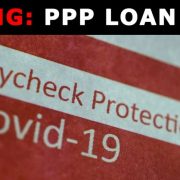
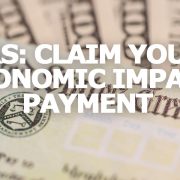
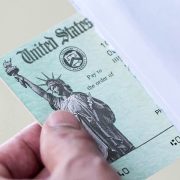
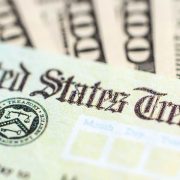
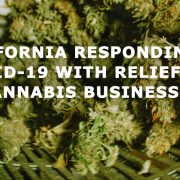
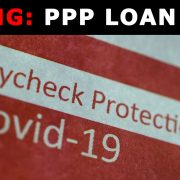

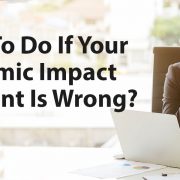

 Follow
Follow Follow
Follow